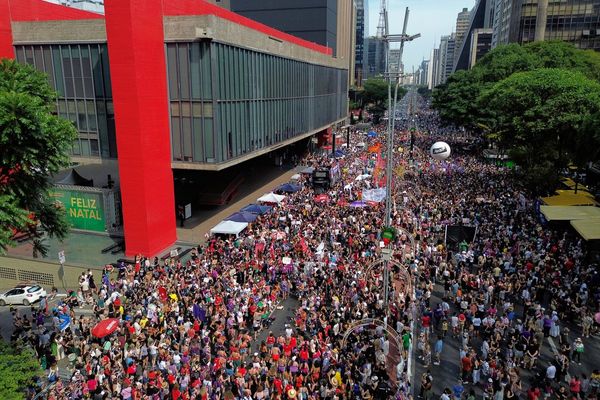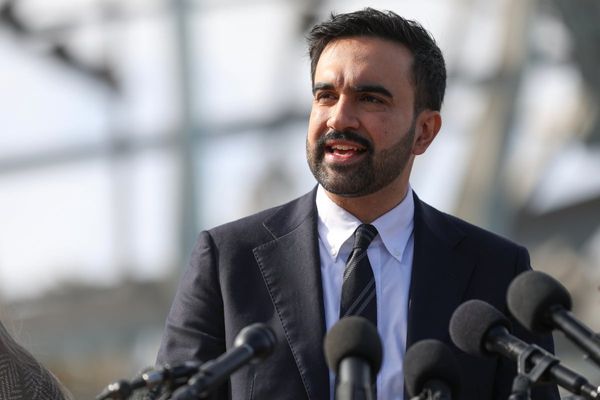South Australia's police commissioner has criticised protesters at council meetings for diverting officers from fighting crime in Adelaide's suburbs after a demonstration against a CCTV camera plan last night.
And Grant Stevens says police do not have access to the facial recognition technology that protesters are concerned about.
About 70 protesters gathered at the City of Salisbury council chamber on Tuesday night to oppose the council's Smart Cities initiative which will introduce more CCTV cameras to the area.
All but two councillors voted in favour of affirming their support for the proposal and ruled out the use of facial recognition technology.
About 100 protesters gathered outside the council chambers on Monday night but the meeting was cancelled due to a power outage in the area.
The protesters were from the No Smart Cities Action Group (NOSCAG), which recently delivered tens of thousands of pamphlets across Salisbury likening the Smart Cities program to an "open-air prison" without privacy.
A council meeting in Adelaide's southern suburbs was adjourned earlier this month after protesters disrupted proceedings
Commissioner Stevens told ABC Radio Adelaide on Wednesday morning that significant resources were being spent on protests that the force was not notified of beforehand.
He said police could take civil action to recoup costs of responding to "pop-up" protests and organisers could face charges under the Public Assemblies Act.
"People have a right to protest — we are very tolerant of how people behave — but we do expect people to work with us. We do expect cooperation," Commissioner Stevens said.
Officers were called to the Salisbury council meeting on Tuesday, and 11 patrols attended the Onkaparinga meeting two weeks ago.
"That's 11 patrols from one district, which means other members of the community who may need police assistance are going to be waiting," Commissioner Stevens said.
Council to go ahead with plan
The Salisbury council decided at Tuesday night's meeting to move forward with bolstering the CCTV in the area despite opposition from protesters.
Salisbury Mayor Gillian Aldridge, who supports Smart Cities technology, said the meeting was held to try and dispel misinformation about the proposal circulating in the community and on social media.
"It is rolled out and it's been here for ages," she said.
"It's things like finding out the hoon drivers, people have asked us, can we please have cameras, it's about illegal dumping of rubbish, it's about bins that tell you when they are full.
"It's about looking after the community the best we can."
The NOSCAG group used a picture of senator Alex Antic in a pamphlet distributed to tens of thousands of local households, but he said it was used without his knowledge or consent.
He had opposed a similar plan in the City of Unley.
"I think it's sad that 52,000 households which is 150,000 people were given something and they actually believed it even though it wasn't signed, there's no phone number to ring to find out whether it was true or not," Ms Aldridge said.
"It scared a lot of people and I think that's so sad, a lot of elderly people are frightened."
Police explain use of technology
Last year, the Adelaide City Council voted unanimously not to include facial recognition technology in new security cameras being installed across the CBD.
The council had written to SA Police asking if they could delay using facial recognition technology if it was installed in city cameras until safeguards measures were in place, but police indicated they would likely still use the technology.
Attorney-General Kyam Maher told parliament in July that CCTV vision collected by one agency could not be used for another purpose "unless the agency has reason to suspect that unlawful activity has been, is being or may be engaged in".
Commissioner Stevens on Wednesday said there was no facial recognition in use in council CCTV networks that alert police if a person appears on CCTV on the street but they can put images through their system to check them against a database of faces.
He agreed this was a "fundamental difference" to being alerted to someone's presence in an area.
"We have to upload an image and search the database," he said.
Local resident Alvin Warren told the Salisbury council meeting he had widespread concerns about the Smart Cities proposal.
"One of my concerns is the financial burden that is going to be placed onto residents for the implementation of this system and its continuing annual maintenance," he said.
"We are looking at the data records of this stuff, where is it going to be stored? Is it going to be onshore, is it going to be offshore, who's going to get access to this stuff?"







